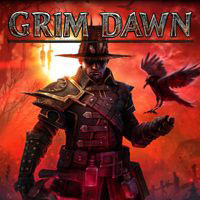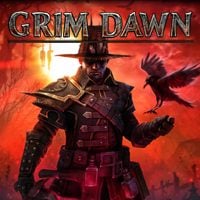Grim Dawn Review – worthy heir to Titan Quest
The creators of the magnificent Titan Quest certainly didn’t rush their next project, but after years of hard work, we have finally got it. Grim Down is a surprisingly good hack’n’slash, and a solid base for further growth.
The review is based on the PC version.
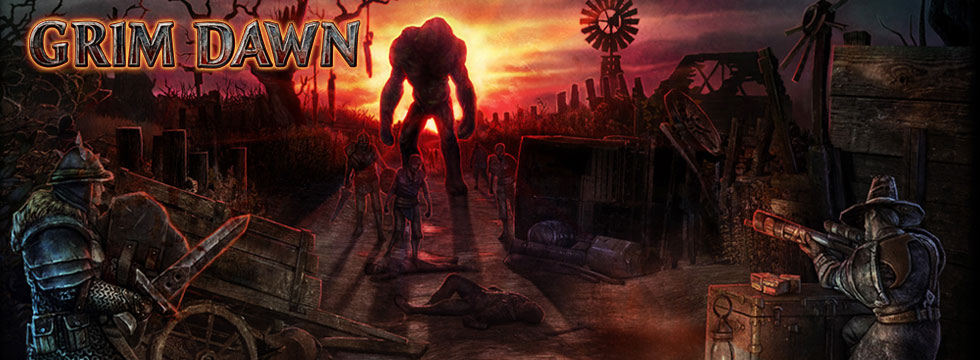
- Amazing character development system;
- A lot to discover in the vast world;
- Many additional mechanics: faction points, crafting, constellations;
- Really engrossing;
- Though technologically outdated, it can stutter even on a powerful rig;
- The boss fights are just so-so;
- (For some) multiplayer is of lesser importance.
The story of Grim Dawn is a story of disappointments of the devs, who, after the success of Titan Quest, were struggling for a long time to finish their next project. It’s a story of great persistence, and trying any possible solution to accomplish the goal. It was a long, long night – but then came the dawn. After a promising Kickstarter campaign in 2012, the project reached Steam Early Access in fall 2013. During the many following moths, when the game was being polished, the devs were maintaining an exemplary relation with their fanbase, listening closely to their opinions. Now, six years after its first announcement, the long-awaited hack’n’slash has just been released. That bumpy road led Create Entertainment much further than they’d initially planned. Grim Dawn is among the most interesting examples of the genre, one that follows in the footsteps of the cult Titan Quest.
This game establishes a clear bond to its “ancient” predecessor; both games run on the same engine, and share many ideas in terms of mechanics and gameworld solutions. We rush ahead from portal to portal, visit unique, often linear locations, the enemies, aside from regular items, drop characteristic trophies which can improve our stats, and the experience points are used to develop a two-class character. All you Titan Quest fans will feel at home if, of course, you can get over the post-apocalyptic background, which would make the idyllic vistas of the ancient Greece feel out of place. Grim Dawn drops that setting on account of a dark-fantasy universe resembling the classic Warhammer in many aspects. The difference is that contrary to the Old World which is still, if barely, breathing, Cairn had already gone through its ultimate catastrophe that led to the fall of the civilization. The awaken evil is after the remaining humans, and the only hope for them is the fact that the invaders are divided, competing for the right to the tastiest morsels.
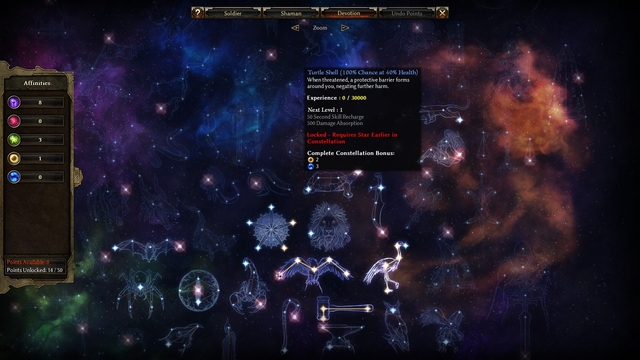
Equally comforting is the fact that the protagonist has survived being possessed by a demon, and gained supernatural skills in the process – who will he become is only up to the players. Choosing from the six initial archetypes is but a beginning. Later on, we are also able to pick a second, supplementary class. And we already have a variety of possibilities inside of just one. We can combine many different active skills with passive auras. Then, after discovering the shrines scattered around the world, we can invest some points within a separate tree – faith. Furthermore, unlocking the constellations introduces new bonuses and powerful abilities – the sky is full of stars, but to get those superior ones, we have to meet the prerequisite in Devotion points... and so on, and so forth. The amount of elements modifying the hero’s stats is massive, and tweaking them gives a lot o satisfaction – much more than poking around the runes of Diablo III. And that’s not the only difference between Grim Dawn and Blizzard’s hit.
Crate Entertainment decided to sculpt the world, rather than generate it – there are no random locations. We get a world that is complex and polished. There are loads of hidden secrets, unique bosses, and obscure passages that reveal new locations. And this sort of design strongly resonates with my taste since it allows a creation of a logical universe – task that a script would fail. This raises obvious concerns about the “expiry date” of the game – how many times can we roam through the same Burrwitch?
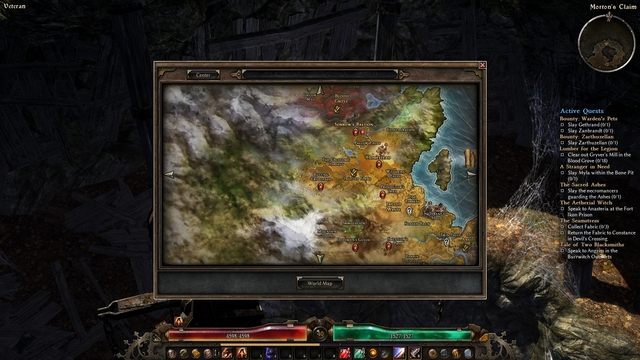
A multiplayer could certainly benefit the diversity of this game, but it’s rather clear that it wasn’t the devs’ priority. Upon entering the multiplayer tab, we are greeted by an archaic browser – it is almost reminiscent of the dial-up era, since the game is lacking dedicated servers or a convenient support for hosting your own games – guests will often experience lags, as well as numerous glitches. There’s much room for improvement here.
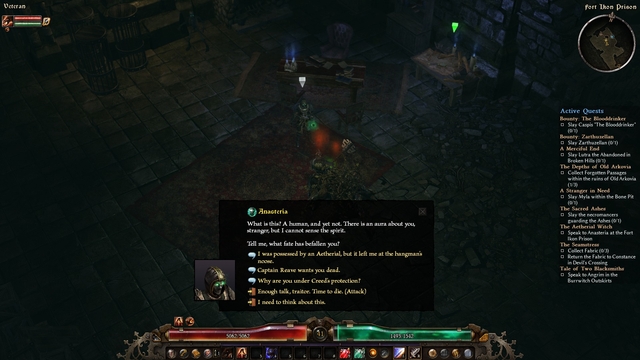
The plot in Grim Dawn is only revealed during conversations with NPCs, and through scattered notes. There are no cutscenes at all – this has a negative impact on the narrative: we feel a bit isolated from all the important events of the game, as if they took place somewhere else. But let’s not expect too much from a hack’n’slash, shall we?
Luckily enough, the content of the single-player leaves no room for complaints. Even after finishing the game, there’s no point in immediately switching to the Elite mode (a more challenging New Game Plus). During the first play-through, which took me roughly 20 hours, I only found about half of the shrines – the other half is still waiting somewhere in the undiscovered dungeons and caves. Those daring to brave the game on the elite level of difficulty during the first play can meet with a bitter disappointment – the game will no longer treat you fair: the monsters will be stronger, the protagonist less resilient, and there will be more challenges. NG+ is much different of an experience – not only do we keep all of the equipment we had acquired, but our reputation is also transferred to the new game, allowing us to reach the unique quests sooner.
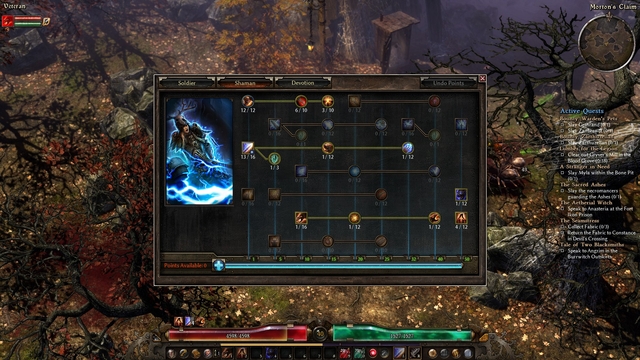
In Cairn we can gain not only faith and experience points – we also climb the ladder of status and recognition in allied factions. Reaching higher levels of trust gives us access to better equipment and more difficult quests. It’s not just a cosmetic difference – during the game, we have to decide whose consideration we want to pursue – in order to quickly get the best possible equipment, it’s mandatory to focus on a single faction’s needs. And there is a lot to fight for: the elite stores have some excellent items in stock. In this respect, Grim Dawn cuts ties with the rest of the genre, where the shopkeepers often sell garbage at horrendous prices.
In spite of the rich contest, this game unfortunately does look its age – that is, a game the development of which started in 2009. Some landscapes are identical to the screens released when the game was announced six years ago. Time has taken its toll on the Titan Quest’s engine, and though the exaggerated rag-doll makes the fights pretty satisfactory, the animations are a far cry from the current standards. If a warrior wields a two-handed axe, it would be appropriate for him to mightily swing the thing, not shake it above his head like a giant pencil. Still, the increasing amount of special effects unlocked later on, somehow manages to mitigate the unpleasant look of the animations. Such events, however, don’t go without a hassle, since the game can be as picky as Crisis on an old GPU. The nice but elderly visuals are accompanied by frame-rate drops during the most intensive fights on a hardware that was able to run Dragon Age: Inquisition, Battlefield 4, or The Witcher 3 on 60fps, and that should not happen.
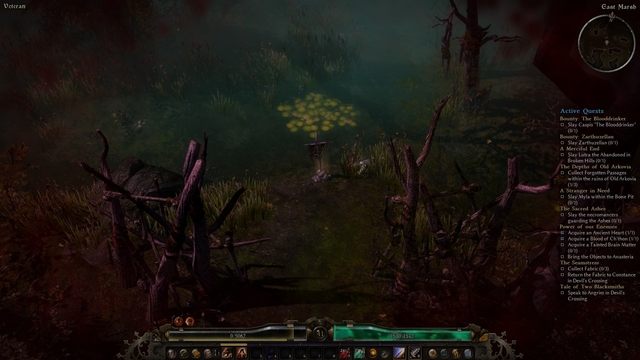
It would be impossible to have a game like that without crafting. After finding a blacksmith, we are able to have some weapons forged – that requires the trophies picked up from fallen enemies, as well as some cash. During the game we can obviously encounter many scrolls with schematics for powerful artifacts as well.
The boss fights weren’t convincing either. In this aspect, Diablo III has set the bar very high by introducing elements from slashers and arcade games. The developers tried to transplant elements such as the need to analyze the array of enemies’ movements and learn to react to them, but the game is nowhere near Blizzard’s clarity and smoothness. Same goes for the diversity of the enemies – the team wasn’t able to provide unique enemies for each level, which is particularly disappointing during the final hours of the game, when many well-known creatures reappear.
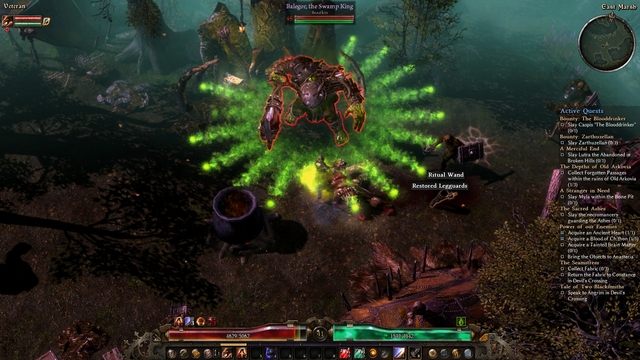
In the long run, this isn’t a huge disadvantage, since Grim Dawn managed to merge a handful of interesting mechanisms into a coherent and devilishly engrossing game. The development of the hero becomes addictive – it’s the ultimate evidence that hack’n’slashes (and RPGs in general) simply can’t do without a system for tinkering with the stats, which Blizzard has so easily given up on. Add a gameplay consisting in equal amount of slaughter as of exploration and a system of factions, allowing to define our outlook in the post-apocalyptic world, and you will get a title that is immediately accepted into the club of the best hack’n’slashes in history.
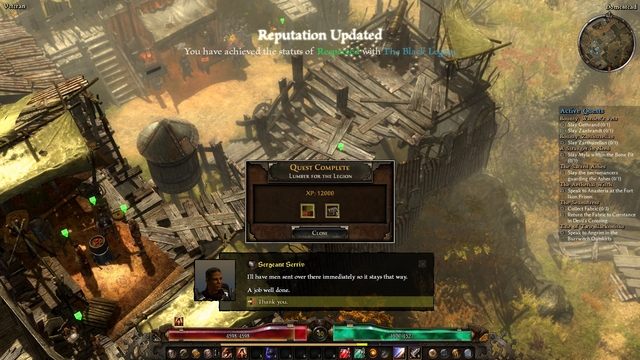
Is the current set of classes enough to keep us with the game for 3 or 4 playthroughs? For how long do the developers plan to support the game with updates, and can we expect to get new content along the way? How will the multiplayer be developed? The questions about the distant future of Grim Dawn remain open, but cannot influence our opinion about the game’s present form. It must be pointed out that the developers were straight with us and fulfilled the promises they’d made. If this is the dawn, I can’t wait to see what Create Entertainment are really capable of should they manage to fully realize their potential.
Grim Dawn
Grim Dawn Review – worthy heir to Titan Quest
The creators of the magnificent Titan Quest certainly didn’t rush their next project, but after years of hard work, we have finally got it. Grim Down is a surprisingly good hack’n’slash, and a solid base for further growth.
